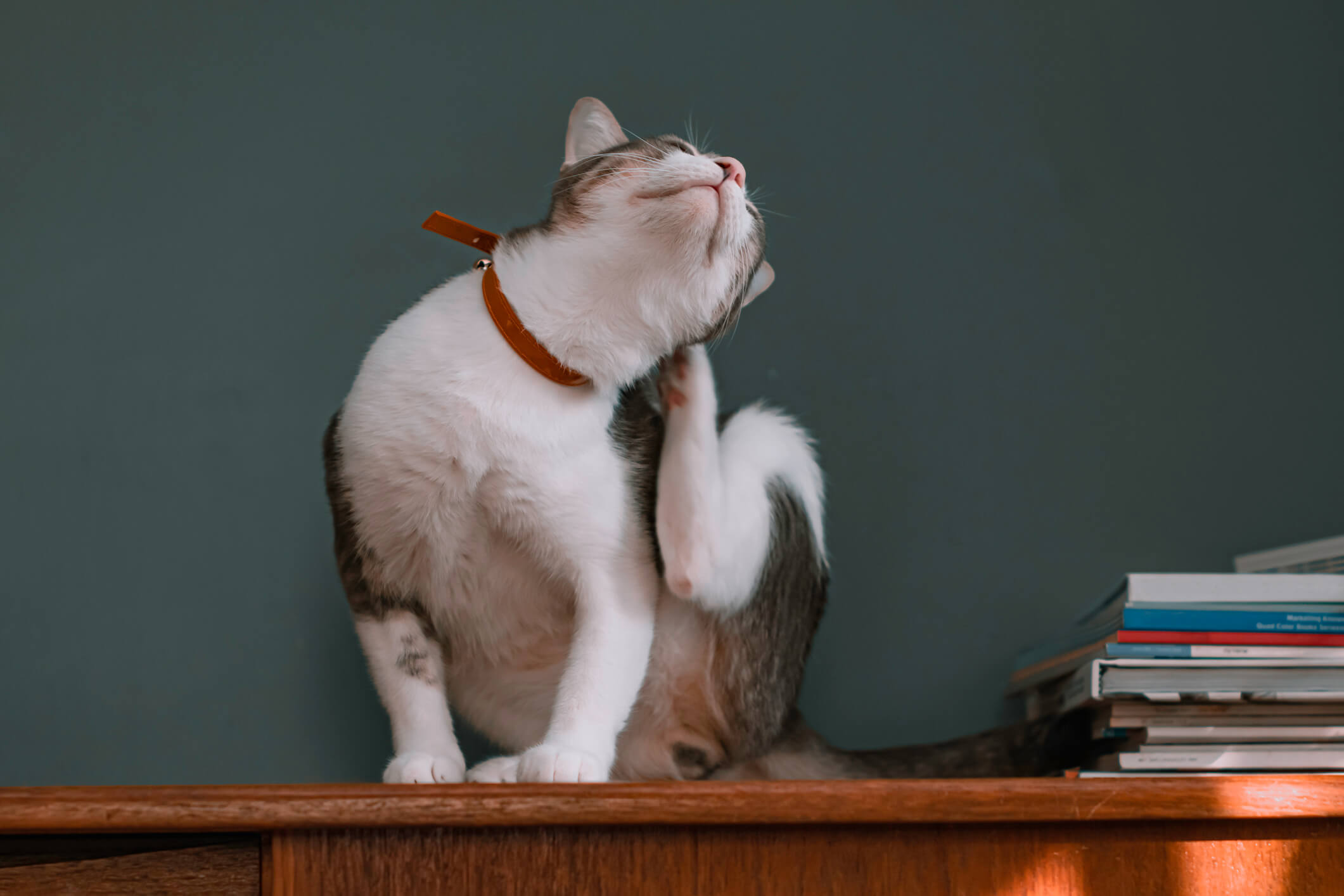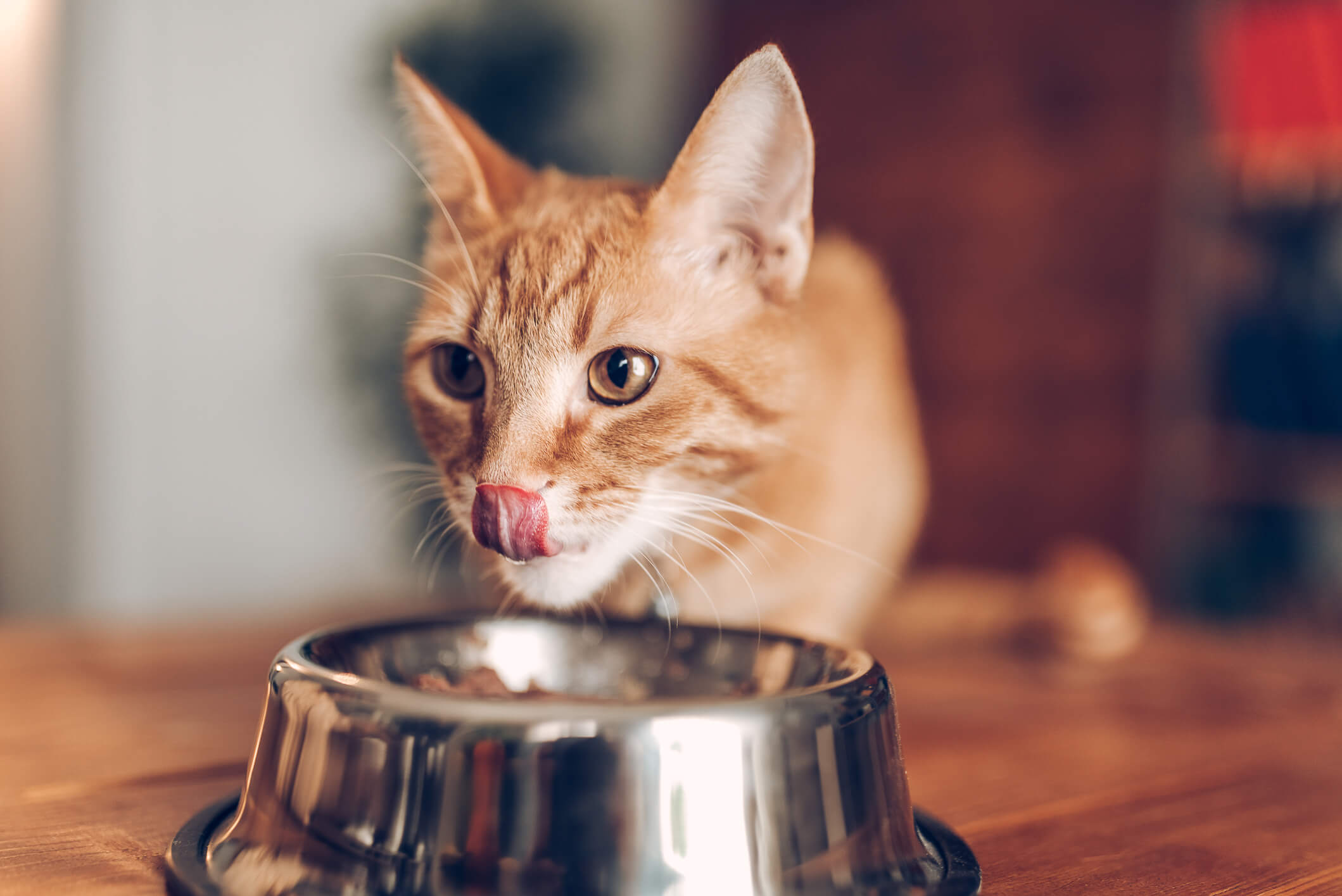
The Connection Between Diet and Your Cat's Healthy Skin
A lot goes into your cat’s silky coat and flawless skin. Daily brushing, self-grooming, flea preventatives and even the occasional bath are essential components to feline skin health. But beyond that, diet also plays a pivotal role in the health of your cat’s skin and coat.
Pet parents understand a healthy diet is important to keep their cats in top shape. However, few people know which specific nutrients contribute to a cat’s skin health. Learn which ingredients are the best for supporting your cat’s healthy skin.
The role of nutrients in skin health
Your cat’s diet can directly impact their skin and coat health. Certain nutrients are crucial for maintaining a shiny coat and supple, flawless skin. One of the most important nutrients for skin and coat health is high-quality protein. The body needs it to produce keratin, which is the main building block for your cat’s hair and nails. A diet packed with high-quality protein boosts keratin production and helps your cat grow a soft, luscious coat.
Protein is also essential for healthy skin. The outermost layer of your cat’s skin is constantly shedding dead skin cells to replace them with new ones. The body uses protein during the cell regeneration process, which is why cats need a diet high in lean proteins like chicken, turkey and cold-water fish.
Essential fatty acids also play an important role in your cat’s skin health. Cells absorb essential fatty acids to hydrate the skin and help maintain its elasticity. Omega-3 fatty acids, in particular, contain anti-inflammatory properties that can reduce itching, redness and swelling. Cats need essential fatty acids in their diet because they’re incapable of producing them on their own. Essential fatty acids are found in animal tissue, cold-water fish and vegetable oil.
In addition to fat and protein, cats need the right blend of vitamins and minerals to maintain optimal skin and coat health. For example, zinc speeds up the metabolism and helps the body use fat and protein to generate new cells. Antioxidants such as vitamin C and vitamin E protect skin cells by reducing oxidative stress. High-quality pet food can provide the right balance of nutrients necessary for healthy hair and skin.

Symptoms of skin problems in cats
Poor diet can alter the appearance of your cat’s skin and coat. Several factors may contribute to skin problems, such as low fat intake, low-quality proteins or a nutritional deficiency. Some foods can also have excessive quantities of certain vitamins and minerals, which can inhibit the absorption of nutrients that aid in fat and protein metabolism.
A pet parent should consult their vet to determine which part of the diet is leading to skin and coat problems. While the cause often varies, many cats with skin problems share the same symptoms. Thankfully, these symptoms are relatively easy to spot.
Take your cat to the vet if they display any of the following symptoms:
- Dry, scaly or flaky skin
- Excessive grooming
- Constant itching
- Dull, dry and brittle hair
- Changes in hair color
- Thinning hair or bald patches
- Recurring ear infections
- Lesions on the skin
Essential nutrients for healthy skin
After suffering from a skin problem, cats can achieve healthy skin when their owners provide diets with the right balance of protein, essential fatty acids, vitamins and minerals. Here’s how you can add each of these nutrients to your cat’s food bowl.
- High-quality protein: Look for cat food with a high protein content. Make sure the food contains lean sources of animal meat like chicken, turkey or fish. Alternatively, you can feed your cat a whole-food diet by cooking meat and fish at home.
- Essential fatty acids: Add essential fatty acids to your cat’s diet with a daily fish oil supplement. Fish oil is a rich source of omega-3 fatty acids, which hydrates the skin and reduces inflammation.
- Antioxidants: The two main antioxidants that promote healthy skin are vitamin C and vitamin E. You can find these nutrients in a well-balanced pet food. They’re also abundant in fresh whole foods like eggs, spinach, broccoli and blueberries.
- Zinc: Zinc is a key mineral for your cat’s skin and coat health. Many pet foods contain zinc, but you can add more to your cat’s food bowl through eggs, wheat germ and grass-fed beef.
The food your cat eats can greatly influence their health. If your cat is dealing with skin problems, the solution often lies in their diet. Feed cats a balanced diet of zinc, antioxidants, high-quality protein and essential fatty acids. Within a matter of weeks, you’ll begin to notice healthier-looking hair and skin on your feline friend!



